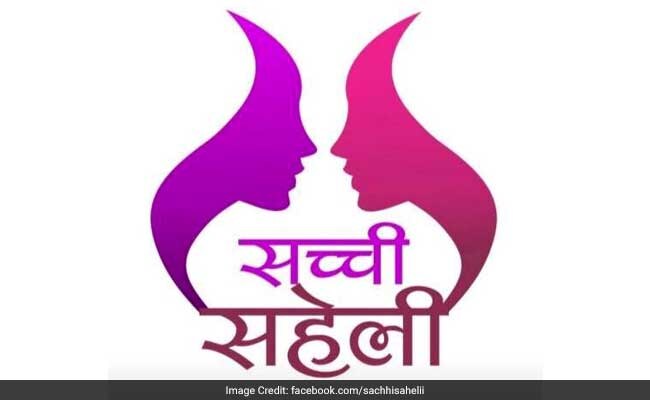
New Delhi:
For all the Frequently Asked Questions (FAQs) about menstruation by the teenage girls will now be answered at Delhi government schools. An NGO will be organizing "period talks" for teenage girls in the schools. NGO Sacchi Saheli, in a campaign named "Break the Bloody taboo" will be talking to girls on these lessons. Sacchi Saheli had earlier started with imparting these talks in slums will now organize sessions in 70 government-run schools of Delhi.
"Usually lessons on menstruation are imparted to girls by their mothers who unfortunately also pass on superstition, stigma and fear surrounding the natural bodily process.
"There is an urgent need to educate young girls that menstruation is no disease and they need not be ashamed of it," Dr. Surbhi Singh, a gynaecologist, who has been roped into conduct these lessons told Press Trust of India.
The team of Sacchi Saheli, led by Dr. Surbhi Singh will offer scientific reasons to the questions raised by teenage girls on menstruation and the myths surrounding it. During the sessions to be organized in the schools, a questionnaire will be handed out to girls to gauge how much they know about the process.
Dr. Surbhi Singh also said that the mothers of these girls will albo be counselled to ensure their orthodox beliefs about menstruation are changed, if needed be.
So far these lessons have been conducted in slums in Kondli, Laxmi Nagar, Krishna Nagar, Patparganj, Trilopkpuri, Madanpur Khadar, Wazirpur and Shakur Basti.
Sachchi Saheli is an NGO who works to educate girl child about Menstruation and myths and taboos attached with this natural process.
Aam Admi Party government in the Delhi is taking up various schemes and initiatives in the national capital region to revolutionise the education system since it came to power two years ago.
The government in its 2015-16 Budget allocated Rs 9,836 crore for the education sector. It increased the spending in its 2016-17 Budget, allocating Rs 10,690 crore for education -- 23 per cent of the total Budget, reported IANS
Last year, the Delhi government launched its "Chunauti 2018" programme which aims at enabling students, especially of Class 9, to overcome the adverse effects of the 'No Detention' policy and raise their ability to read.
(With Inputs from PTI and IANS)
Click here for more Education News
"Usually lessons on menstruation are imparted to girls by their mothers who unfortunately also pass on superstition, stigma and fear surrounding the natural bodily process.
"There is an urgent need to educate young girls that menstruation is no disease and they need not be ashamed of it," Dr. Surbhi Singh, a gynaecologist, who has been roped into conduct these lessons told Press Trust of India.
The team of Sacchi Saheli, led by Dr. Surbhi Singh will offer scientific reasons to the questions raised by teenage girls on menstruation and the myths surrounding it. During the sessions to be organized in the schools, a questionnaire will be handed out to girls to gauge how much they know about the process.
Dr. Surbhi Singh also said that the mothers of these girls will albo be counselled to ensure their orthodox beliefs about menstruation are changed, if needed be.
So far these lessons have been conducted in slums in Kondli, Laxmi Nagar, Krishna Nagar, Patparganj, Trilopkpuri, Madanpur Khadar, Wazirpur and Shakur Basti.
Sachchi Saheli is an NGO who works to educate girl child about Menstruation and myths and taboos attached with this natural process.
Aam Admi Party government in the Delhi is taking up various schemes and initiatives in the national capital region to revolutionise the education system since it came to power two years ago.
The government in its 2015-16 Budget allocated Rs 9,836 crore for the education sector. It increased the spending in its 2016-17 Budget, allocating Rs 10,690 crore for education -- 23 per cent of the total Budget, reported IANS
Last year, the Delhi government launched its "Chunauti 2018" programme which aims at enabling students, especially of Class 9, to overcome the adverse effects of the 'No Detention' policy and raise their ability to read.
(With Inputs from PTI and IANS)
Click here for more Education News
